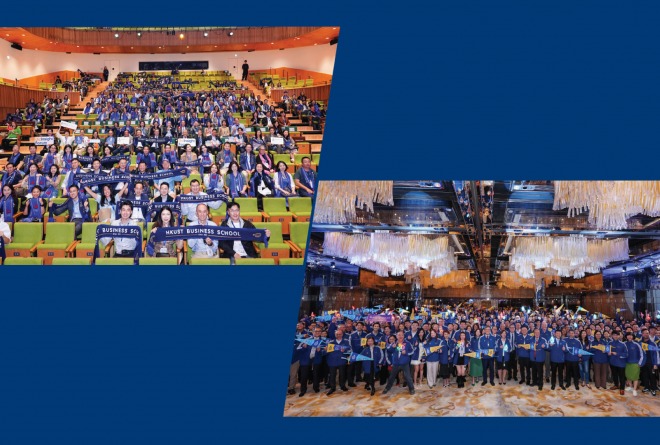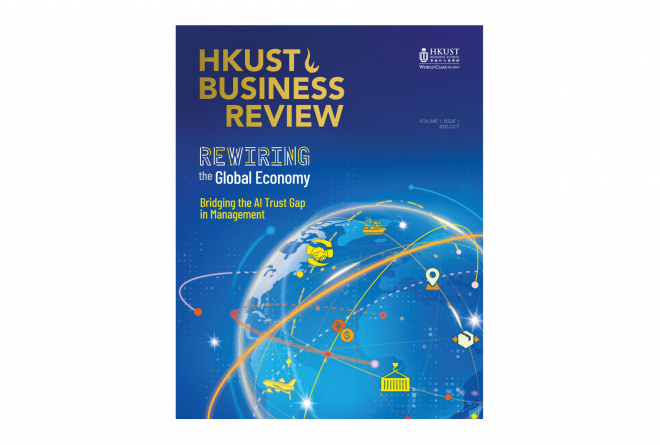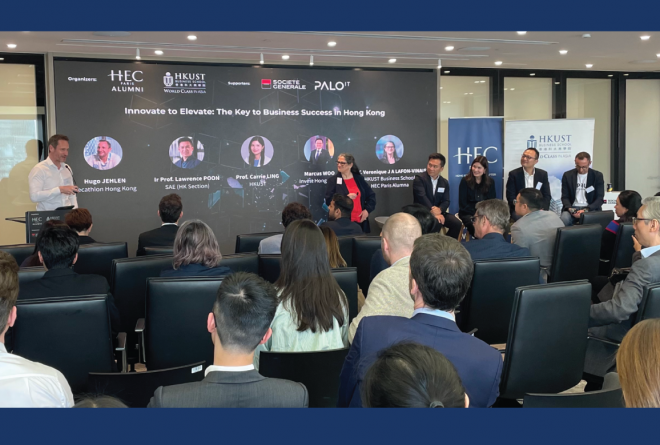
Entrepreneurs possess a special gift – the ability to spot opportunities. Although COVID-19 has disrupted the global economy, several startups in Hong Kong and beyond thrived by swiftly identifying and filling new gaps in the market. Going forwards, what are the opportunities for startups in a post-COVID world?
On October 21, HKUST alumni and tech entrepreneurs – Hans PAUL, Co-Founder & Directo of Aigens Technology, and Mark MAK, Co-Founder of Roborn Technology, shared their experience in the webinar “Disruptive Innovation by Alumni Entrepreneurs: "Capturing the Virus, the Technologies, or the Opportunity?”. The online event was moderated by Prof Sai-Kit YEUNG, Associate Professor in the Division of Integrative Systems and Design (ISD) and Founder of SKY Optimum Technology.
Although Aigens and Roborn landed in the tech startup scene, Hans and Mark took very different routes in their entrepreneurship journeys. While Hans became involved in food ordering technology while studying his MBA at HKUST, Mark’s entrepreneurship endeavors began while he was an HKUST undergraduate. As COVID-19 took over the world, both entrepreneurs identified new opportunities to develop new solutions to meet market needs and benefit the society.
Hans’ approach to entrepreneurship focused on understanding macro trends and riding on opportunities to develop timely solutions. When he started Aigens in 2011, Apple had just launched the first generation of iPhones and online shopping wasn’t popular in Hong Kong. Many companies have tried online shopping over the years but failed as consumers preferred going to physical stores. Yet, the pandemic changed everything almost overnight, giving online shopping and food delivery opportunities to shine. “It’s very important to understand what the market environment is and respond to it.”
For Mark, Roborn began as a robotics solutions company. Later on he saw the potential Roborn could bring to the market by integrating and enhancing robotics with modern technology, including 5G, AI, and cloud technology. Mark’s strategies focused on analyzing current pain points and collaborated with companies in other industries to work on new solutions. At the height of the pandemic in Hong Kong, Roborn developed and deployed several pandemic prevention robots to combat COVID-19 and support the local healthcare system and other industries.
However, every startup has to overcome many hurdles, especially in the beginning. When one of the participants asked for advice in building a sustainable business, Mark’s advice focused on building core competency and ensuring good management of resources and manpower. Hans also suggested solving internal problems first and establishing a good founding team. “Above all, it’s people business. Even if you have good technology, you need people to go to the market.”
Looking ahead at the unprecedented future, Mark believes that “the ‘new normal’ comes with huge opportunities... However, we also need to identify what a ‘new normal’ is.” He encouraged graduates and students to explore business models to fill new gaps in the “new normal”. Hans also chimed in that “[A] ‘new normal’ means long term….[It’s] hard to predict but entrepreneurs are observant of what the future can be.” While COVID-19 has presented many short-term opportunities, startups should focus on building a sustainable business and be observant of current and future market changes.
To view the event recording, please click here. For more alumni happenings, stay tuned with us here.






